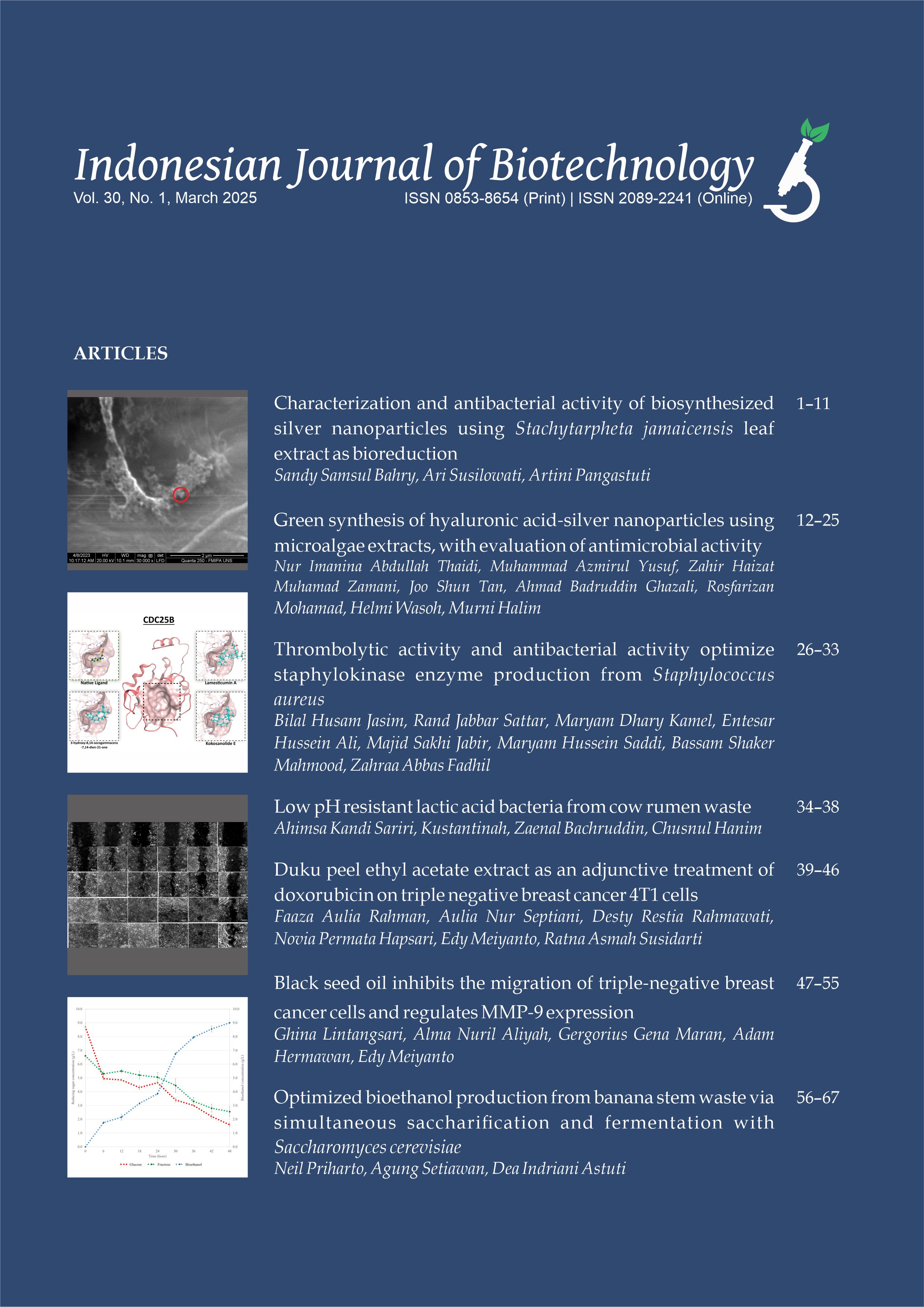Microorganisms Associated with Volatile Organic Compound Production in Spoilt Mango Fruits
Aliyu D. Ibrahim(1*), Bankole S. Oyeleke(2), Ummul Khaltum Muhammad(3), Adamu Aliyu Aliero(4), Sabo E. Yakubu(5), Hadiza M. Safiyanu(6)
(1)
(2)
(3)
(4)
(5)
(6)
(*) Corresponding Author
Abstract
Microorganisms associated with the production of volatile compound in spoilt mango fruits sold in Sokoto town were isolated and identified. The organisms include seven species of bacteria and a species of yeast. These include Bacillus pumilus, Bacillus firmus, Brevibacillus laterosporus, Morganella morganii, Paenibacillus alvei, Staphylococcus saccharolyticus, Listeria monocytogenes and Candida krusei respectively. GC-MS analysis revealed the presence of eleven and sixteen volatile organic compound in the healthy and spoilt ripe mango fruits. Octadecanoic acid, oleic acid, 1 – Butanol, 3 – methyl-, carbonate (2:1) and 3,7 – Dimethyl nonane were common to both healthy and spoilt fruits with the first three having higher concentration in healthy fruits than spoilt while the later had higher concentration in the spoilt. One methyl group of 3,3- Dimethyl hexane in healthy fruit was shifted to position two to yield 2,3-Dimethyl hexane in the spoilt fruits. 2,2-Dimethylbutane, Methyl(methyl-4-deoxy-2,3-di-O-methyl.beta.1-threo-hex-4-enopyranosid) urinate, 3-(4-amino-phenyl)-2-(toluene-4-sulfonylamino)-propionic acid, 2-Methyl-3-heptanone, 3,5-Nonadien-7-yn-2-ol, (E,E), Butanoic acid, 1,1-dimethylethyl ester, 1-methyl-3-beta.phenylethyl-2,4,5-trioxoimidazolidine, Pentanoic acid, 2,2-dimethyl, ethyl ester (Vinyl 2,2-dimethylpentanoate), 4-Methyurazole, 1-Tridecyn- 4 – 9 – ol, 1-Hexyl-1-nitrocyclohexane were unique to spoilt fruits. This study suggests that these unique volatile metabolites could be exploited as biomarkers to discriminate pathogens even when more than one disease is present thereby curbing post harvest loss during storage after further validation and the volatile organic compound could form the basis for constructing a metabolomics database for Nigeria.
Full Text:
PDFArticle Metrics
Refbacks
- There are currently no refbacks.
Copyright (c) 2015 Indonesian Journal of Biotechnology









